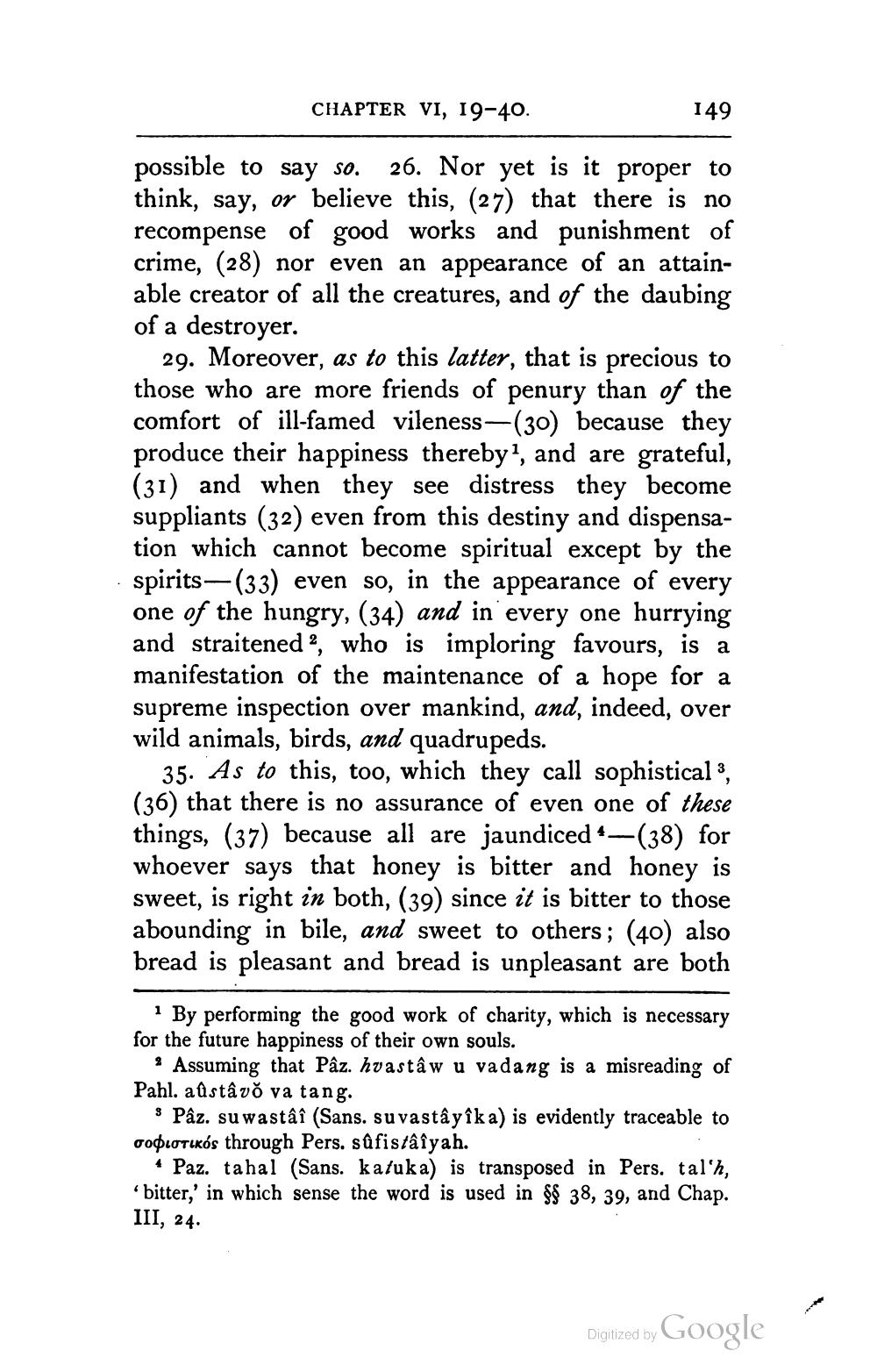________________
CHAPTER VI, 19-40.
149
possible to say so. 26. Nor yet is it proper to think, say, or believe this, (27) that there is no recompense of good works and punishment of crime, (28) nor even an appearance of an attainable creator of all the creatures, and of the daubing of a destroyer.
29. Moreover, as to this latter, that is precious to those who are more friends of penury than of the comfort of ill-famed vileness—(30) because they produce their happiness thereby!, and are grateful, (31) and when they see distress they become suppliants (32) even from this destiny and dispensa
tion which cannot become spiritual except by the · spirits — (33) even so, in the appearance of every
one of the hungry, (34) and in every one hurrying and straitened ?, who is imploring favours, is a manifestation of the maintenance of a hope for a supreme inspection over mankind, and, indeed, over wild animals, birds, and quadrupeds.
35. As to this, too, which they call sophistical 3, (36) that there is no assurance of even one of these things, (37) because all are jaundiced 4—(38) for whoever says that honey is bitter and honey is sweet, is right in both, (39) since it is bitter to those abounding in bile, and sweet to others; (40) also bread is pleasant and bread is unpleasant are both
By performing the good work of charity, which is necessary for the future happiness of their own souls.
. Assuming that Pâz. hvastâw u vadang is a misreading of Pahl. a ûstâvo va tang.
s Pâz. suwastâî (Sans. suvastâyîk a) is evidently traceable to COPLOTikós through Pers. sûfistâîyah.
Paz. tahal (Sans. katuk a) is transposed in Pers. talh, bitter,' in which sense the word is used in $$ 38, 39, and Chap. III, 24.
Digitized by Google
Ogle




